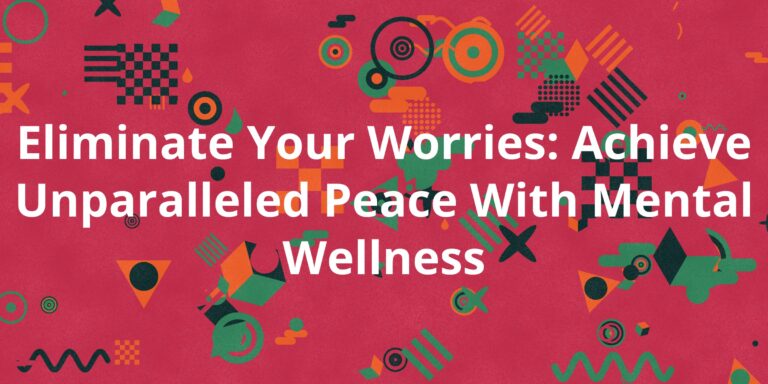Empower Your Mind: A Comprehensive Guide to Mental Well-Being
Mental well-being is something that we all strive for, yet many of us struggle to achieve. It’s not just about feeling good or being happy; it’s about living a life filled with purpose, meaning, and fulfillment. In this comprehensive guide, we will explore the key components of mental well-being and provide practical tips and strategies to help you empower your mind and live a more balanced and fulfilling life.
1. Understanding Mental Well-Being
Mental well-being is often described as a state of being in which an individual realizes their potential, copes with the normal stresses of life, works productively, and contributes to their community. It involves not just the absence of mental health problems but also the presence of positive mental health, including happiness, contentment, and resilience.
2. The Key Components of Mental Well-Being
There are several key components of mental well-being that are essential for living a balanced and fulfilling life. These include:
* Positive emotions: Positive emotions such as love, joy, gratitude, and contentment contribute to a sense of happiness and fulfillment in life.
* Engagement: Engaging in activities that bring us joy and purpose helps us feel connected to the world around us and gives our lives meaning.
* Relationships: Strong and supportive relationships with family, friends, and community provide a sense of belonging and support during difficult times.
* Meaning and purpose: Having a sense of purpose and meaning in life helps us find direction and motivation to achieve our goals.
* Accomplishment: Achieving our goals and feeling successful contributes to a sense of self-worth and accomplishment.
3. Practical Tips for Improving Mental Well-Being
There are many practical tips and strategies that you can use to improve your mental well-being. Here are some of the most effective:
* Practice mindfulness: Mindfulness involves paying attention to the present moment without judgment. It has been shown to reduce stress, anxiety, and depression, and improve overall mental well-being.
* Exercise regularly: Regular physical activity has been shown to have numerous benefits for mental health, including reducing stress, improving mood, and boosting cognitive function.
* Get enough sleep: Getting adequate sleep is essential for good mental health. It helps regulate mood, improve memory and concentration, and reduce the risk of mental health problems such as depression and anxiety.
* Eat a healthy diet: A balanced and nutritious diet has been shown to have numerous benefits for mental health, including reducing inflammation, improving brain function, and boosting mood.
* Connect with others: Building strong and supportive relationships with family, friends, and community can help reduce feelings of loneliness and isolation, and improve overall mental well-being.
4. Conclusion
Empowering your mind involves taking a proactive approach to your mental health and well-being. By understanding the key components of mental well-being and implementing practical strategies to improve it, you can live a more balanced and fulfilling life. Remember that mental well-being is not just about feeling good or being happy; it’s about living a life filled with purpose, meaning, and fulfillment.



